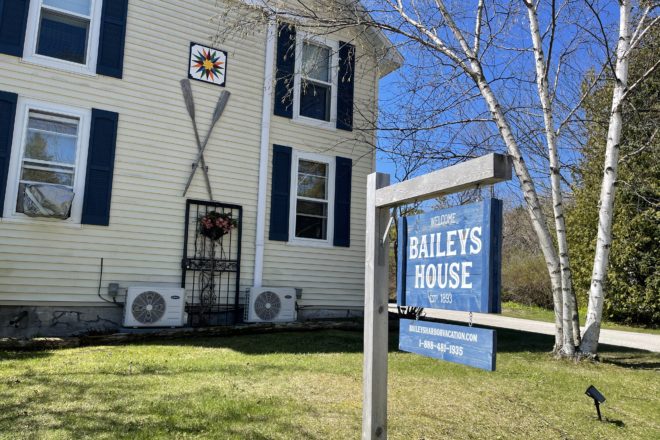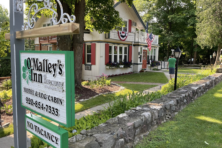Could STR Fees Support Workforce Housing?
- Share
- Tweet
- Pin
- Share

The explosion of short-term rental (STR) properties in Door County is often cited as contributing to the area’s lack of affordable housing.
Now the Village of Sister Bay is exploring whether it can use the growth in short-term rentals to help fund investments in affordable housing. During its Feb. 15 village board meeting, trustees discussed a new short-term rental ordinance that proposes a fee of $2,500 per unit for short-term rental properties, with a large portion of that fee going to investments in affordable housing.
Trustee Denise Bhirdo said there are an estimated 68-70 STRs in the village. If $2,000 per unit were put into a fund for affordable housing, it would raise $136,000 annually. Sevastopol now has the highest fees in the area at $300.
STRs are residential dwellings that are rented for fewer than 29 consecutive days, generally through online lodging marketplaces such as Airbnb and Vrbo. These homes, cabins and cottages rented to tourists continue to multiply as their popularity rises. STR availability in Door County increased 51.48% from 2009 to 2020, and as of May 2021, about 1,500 units in Door County fell into the STR category.
“In the beginning, it didn’t seem so bad, but now more and more homes are getting purchased and used as STRs and creating more and more traffic,” Bhirdo said. “And STR owners are right: They are bringing money into the economy. But how much can any one community handle?”
Village President Rob Zoschke said village staff members routinely field calls from prospectors saying they’re looking to buy a house in the village and turn it into a short-term rental.
“We’ve had realtors tell us it’s the number-one force driving prices higher,” Zoschke said. “I don’t look at it in terms of deterring STRs, but solely as an appropriate fee based on the average gross revenue that most of the STRs are going to do.”
A handful of STR operators spoke up against the proposed fees, saying they would place too great of a burden on many operators and drive some out of the industry. Scott Servais spoke on behalf of the Door County Vacation Rental Association and suggested his organization could provide an example ordinance for the village. Other operators said the complaints about STRs largely stem from a few bad apples and that most operators want the same things as the village board.
“There is a delicate balance here of dissuading people from doing short-term-rental business,” said Kimberly Hazen, landlord of Stoney Ridge Apartments and the owner of two short-term-rental units in the area.
Trustee Chad Kodanko, who manages dozens of rental properties in northern Door County, said he supports the large fee if the village can create an iron-clad way to ensure that the funds support workforce housing.
“It needs to be in place before we pass it, or I wouldn’t be for it,” he said.
But Kodanko also cautioned against painting all operators with the same broad brush. Not everyone is operating rentals as a major income stream, he said.
“There are plenty of smaller places that rent for $900 a week,” he said. “There are also homes that people bought for retirement someday. It’s not just people who came in the last couple of years driving the rates up. A lot of those people are us. We’ve just got to be cognizant of that. Almost none of my clients are straight-up investors. They’re people who use this as a way to get a piece of Door County.”
The ordinance addresses issues beyond fees. It would also require STRs to comply with village signage rules, as all other businesses do. Signage would be limited to two square feet. Zoschke asked whether existing signs would be grandfathered in.
“As plan commission chair, I don’t recall ever approving any signs for short-term rentals,” Bhirdo said. “So any sign that is up now would be an illegal sign, so they would not be grandfathered in.”
The ordinance also requires rentals to have sufficient off-street parking to accommodate all vehicles for the listed occupancy on the premises, and on-street parking for renters would be prohibited. The property owner or a valid point of contact must be located within 30 miles of the STR, and a copy of the resident-agent contract must be provided to the village.
The ordinance will be brought back to the board during a future meeting after additional edits and suggested changes are made.



